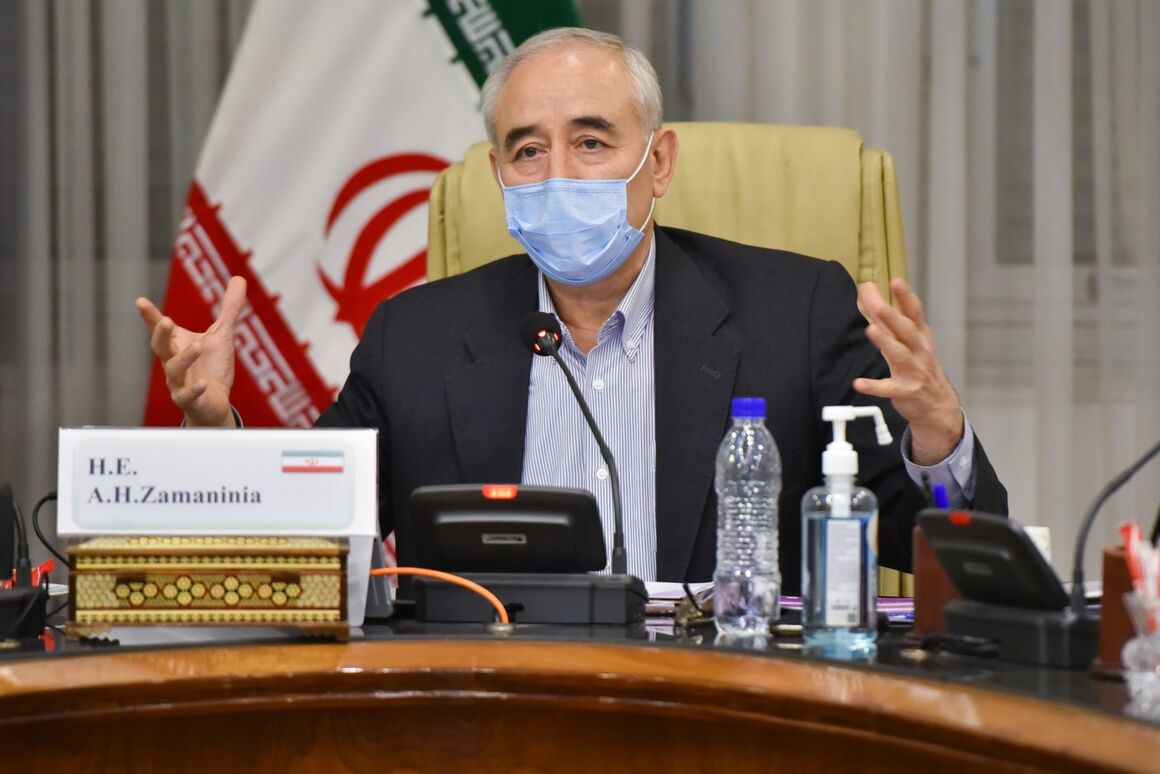Addressing a virtual Ministerial Roundtable ahead of the 22nd Ministerial Meeting of the Gas Exporting Countries Forum (GECF) at his Tehran office on Wednesday evening, Amir Hossein Zamaninia said, “I would say that the very meeting that we have through video conference is the antithesis of our fossil fuel market expansion. By having this meeting on video conference, more than 200 cars did not drive to airports, more than 200 or 300 tickets were not purchased; planes did not fly from all across the world to Algeria and did not come back; and that is the definition of a new normal.”
“This is a very interesting term to me, the new normal; you're learning new things, new way of doing business more efficiently, perhaps with more consideration for the environment and also recognizing the role of technology in our business,” the official, who is also an ad-hoc member of the executive board of GECF, said.
“Now, as far as Iran is concerned, coronavirus had less impact on our gas business than the Donald Trump virus in 2018,” Mr. Zamaninia added, saying: “We got used to viruses and coronavirus did not reduce our production, I mean, gas production. Now, we produce close to a billion cubic meters of gas a day; unfortunately, we consume it like a hungry man domestically. About 95% of our 80 million population have access to piped gas in their homes, even in remote areas. But the silver lining for the Trump Virus for us or the sanctions against us is that we are increasingly learning to decouple our national economy from revenues of fossil fuels.”
He further seconded remarks by the Secretary General of the Organization of the Petroleum Exporting Countries (OPEC) Mohammed Sanusi Barkindo regarding a recovery under way in the gas market, saying, “We think that the recovery will take place even though at a slower rate than expected in the past. As far as we in Iran are concerned, the COVID-19 has inflicted a great toll on us.”
Over 400 people lose their lives in Iran because of COVID-19, said Zamaninia, who is also deputy Iranian petroleum minister for international affairs and trade. Close to 10,000 people are afflicted with this coronavirus in Iran every day which is partly the result of plummeting income for the country, he added.
“Now, the sanctions have ripped us off, have deprived us of hundreds of billions of dollar of income for a developing country with 80 million population, and that has somewhat compromised our health services to attend to the people who get afflicted with COVID-19. Now, the combination of the sanctions and COVID-19 has resulted in this tragic figure of 400 people dead every day.”
“Now, globally speaking, taking after the Secretary General, his Excellency, Mr. Barkindo, we remain hopeful. We remain hopeful that recovery will take place, if not in the mid-term, in the long term. As a global gas outlook study pointed out, in 2050 it is anticipated that the share of gas will be somewhere around 28% compared to 23% today. Therefore, we do remain hopeful and we think that the change of consumer behavior also will work to the benefit of market expansion.”
The yearly Ministerial Meeting of the Gas Exporting Countries Forum (GECF) will take place on 12 November under the rotating Presidency of the Democratic People’s Republic of Algeria. The meeting, and its related events, will convene virtually owing to the COVID-19 pandemic.
The 22nd Ministerial Meeting will discuss the current issues related to the gas industry and its interconnected domains of geopolitics, economy, and sustainability. Esteemed Ministers from the 20-member grouping will also address the key agenda items of membership expansion, annual budget, the new GECF Award, and the 6th GECF Gas Summit of Heads of State and Government, scheduled for 2021.
In addition, the flagship publications of the GECF, Annual Short-Term Gas Market Report and the Global Gas Outlook 2050, will be reviewed, while the Annual Statistical Bulletin will be unveiled.
The Ministerial Roundtable was held as an opportunity to discuss natural gas in a post-pandemic world. The day-long conference featured two separate themes of short- and long-term impacts of COVID-19 on gas markets. Stuart Elliot of S&P Global Platts and Dr Bassam Fattouh of the Oxford Institute for Energy Studies served as the moderators on the two sessions.
The 22nd Ministerial Meeting will be partially broadcasted and open to members of public and media.
On 9-10 November, an Extraordinary Executive Board meeting were held to finalise the agenda and big-ticket items of the 22nd Ministerial Meeting.


Your Comment